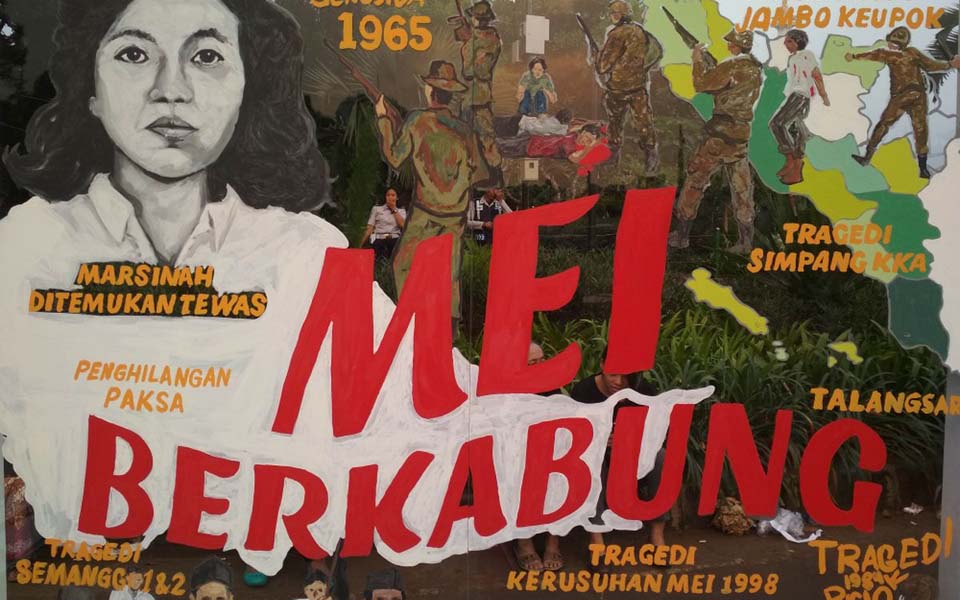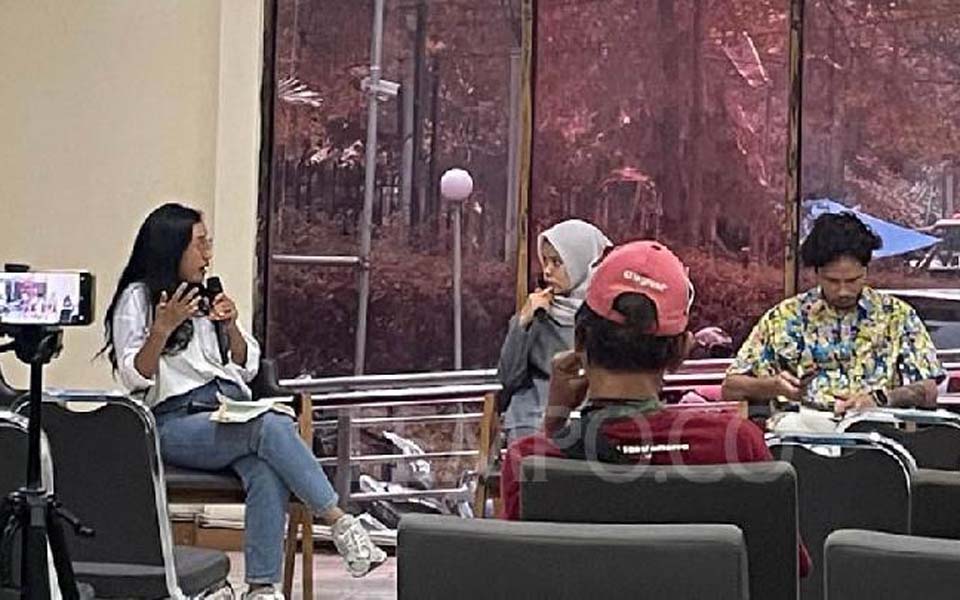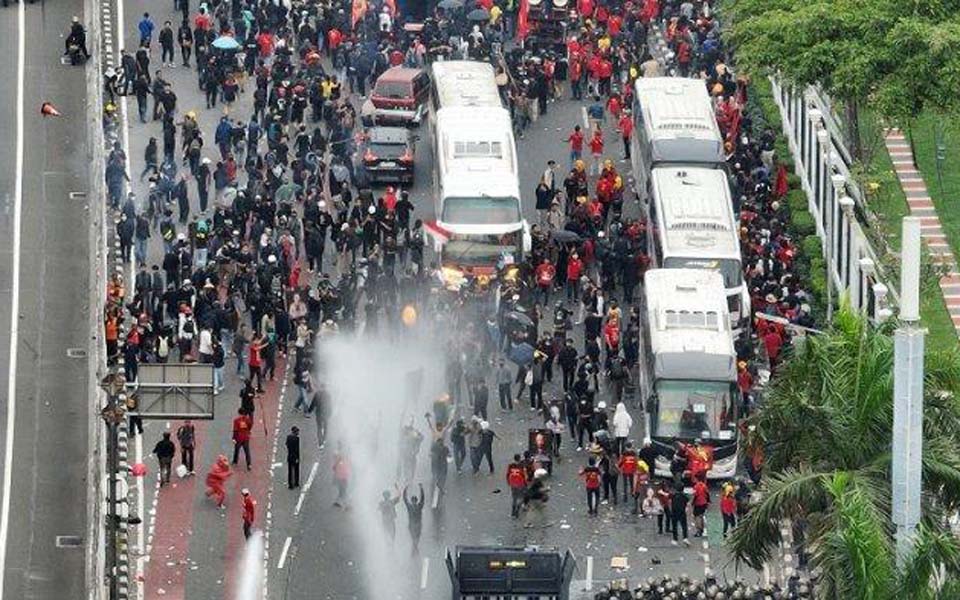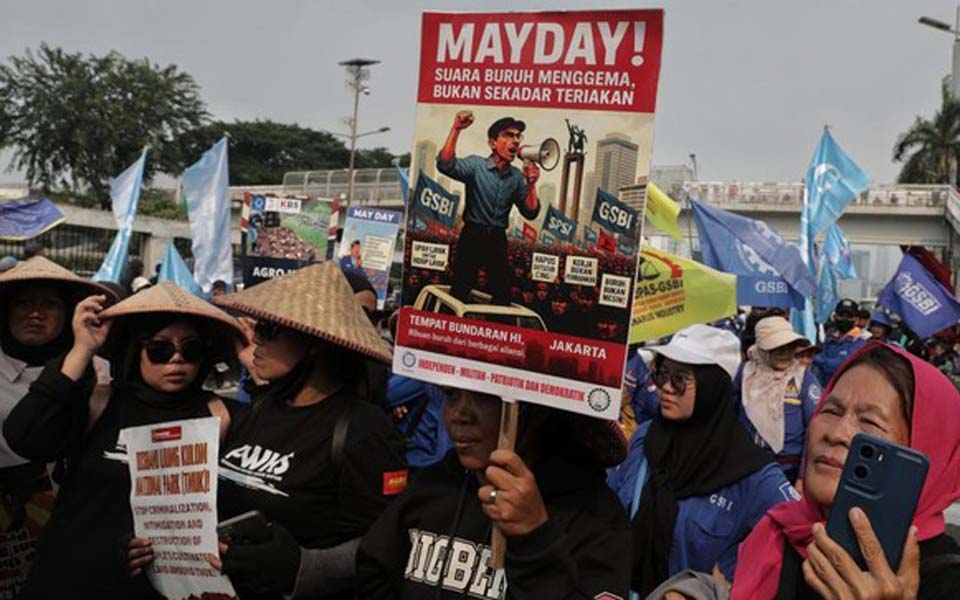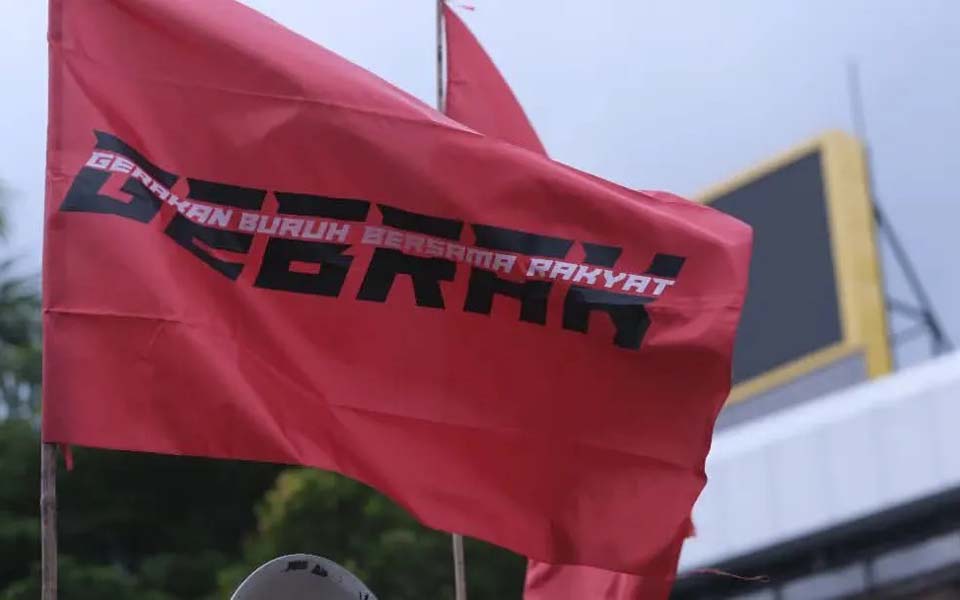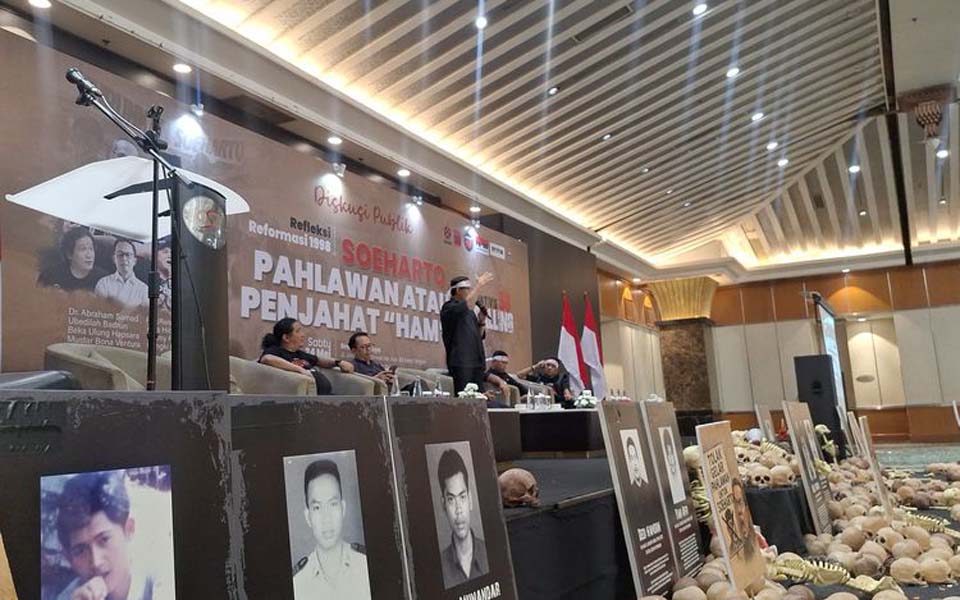Every May, the public is trapped in the romanticism of the 1998 reformasi (reform) movement – a moment that is considered as a milestone in the reform of the political and legal system after the resignation of Suharto from the New Order's reins of power.
The euphoria of Suharto's resignation often covers the harsh reality that reformasi was born from suffering, gross violations of human rights and other systemic violent practices committed by the state.
The Trisakti incident on May 12, 1998, when four students – Elang Mulia Lesmana, Heri Hertanto, Hafidin Royan and Hendriawan Sie – were shot dead by security forces, and the series of violent incidents and sexual violence against ethnic Chinese on May 13-15, 1998, which has become part of a dark history which to this day has not been thoroughly investigated by the state.
A series of similar violent incidents has continued to overshadow May in other years, such as the murder of labour activists Marsinah (May 8, 1993), the Simpang KKA massacre in Aceh (May 3, 1999) and the Jambo Keupok massacre in South Aceh (May 17, 2003). Instead of being celebrated ceremonially, May should be a moment of collective reflection – remembering that the struggle has not been completed while the wounds of the past continue to be left unresolved and without justice.
Now, after more than two decades have passed, the direction of reformasi is actually straying further away from the initial spirit that was fought for. The government born from the womb of reformasi has instead maintained and strengthened the New Order's legacy, complete with the practices of repression, impunity and silencing criticism by the people.
Not only that, the six mandates of reformasi that were once hailed have also been betrayed by reformasi figures themselves who had transformed into the "elite rulers". In fact, individuals who are suspected of being strongly involved in gross human rights violations have now not only escaped legal accountability, but have also been given space and power in government – including the current president whose name has been mentioned in relation to the forced disappearance of pro-democracy activists in 1997-98.
One of the most striking forms of this betrayal is the discourse on awarding the title of national hero to Suharto, the central figure of the New Order authoritarian regime, who should be tried for crimes against humanity and corruption during his reign. This discourse not only injures common sense and justice, but also shows the systematic efforts of the state in forming new narratives that erase the people's collective memory about the cruelty of the past regime. For the survivors of human rights violations, this is not only a denial of history, but also a new wound that continues to be gaping without meaning.
Even one of the most fundamental mandates of reformasi – ending the military's dominance in politics and civilian space – has now been openly betrayed. Reformasi once promised the separation of military roles from civil affairs through the abolition of the Indonesian Armed Forces' (ABRI) dwi-fungsi (dual function), which was officially outlined in People's Consultative Assembly Decree (TAP MPR) Number VII/2000 on the Role of the Indonesian Military (TNI) and National Police (Polri) and confirmed by Law Number 2/2002 on the Indonesian National Police and Law Number 34/2004 on the TNI.
But 27 years have passed and the symptoms of militarism are actually on the rise again. The military is again occupying civilian space and is involved in development projects like food estates that evict people from their own land. Not to mention, active TNI officers occupying civilian positions in government institutions that should not be held by military officers.
Ironically, instead of limiting military power, this has actually been legitimised through the recent revisions to the TNI Law which expanded the military's role in military operations other than war (OMSP) and increased the number of civil positions that can be held by military officers.
Conversely, protests and criticisms that were directed against the revisions to the TNI Law were then responded to with intimidation and violence. Later, the military also began to actively curb academic freedom and student criticism on campuses – a practice that harks back to the dark period of the New Order when freedom of thought was silenced through the NKK/BKK policy (Normalisation of Campus Life/Student Coordination Agency) in the period 1974-75.
On the other hand, the human rights violations and incidents of violence experienced by the people have never stopped, but instead have continued to be repeated with an increasingly worrying pattern. Starting from violence against citizens when expressing opinions in public who are hit with teargas and excessive violence by the police in the field, to traditional communities and indigenous peoples in various regions such as Rempang Island, Balik Sepaku, Poco Leok and Merauke who have continued to face threats to their living space due to National Strategic Projects (PSN) wrapped in the veneer of development and food security.
Their criticisms and opposition are often silenced, even confronted directly with armed apparatus and the threat of prison. Meanwhile the accumulation of capital under the pretext of development through government projects is a source of social conflict, environmental damage and human rights violations.
Narratives such as "food sovereignty" and "national development" continue to be echoed, but the aspirations of the ordinary people are often removed from the decision making process. Ironically, the government born from a democratic process post reformasi has actually reproduced the patterns of power in the style of New Order authoritarianism, anti-criticism and ignoring the suffering of the people. In such a situation, hopes of a resolution to past gross human rights violations is even more unclear with the Attorney General's Office up until now being reluctant to follow up on major cases such as the 1998 events and various humanitarian tragedies in Aceh.
The commemoration of reformasi every May should be a space for reflection, not just celebration. This is the right time for us, the people of Indonesia, to realise that the direction of reformasi has strayed far from its initial ideals. Reformasi that should have been the path to justice and democracy, has now been hijacked in the interests of power.
Human rights violations that were the background to the birth of reformasi have never been fully resolved, while new violence continues to occur – starting from the repression of demonstrations to land grabbing in the name of development and militarism that has again embedded its claws in civilian space. May also begins with International Labour Day – a day of working class struggle that continues to experience oppression in a system that does not side with them. So the month of May should no longer be interpreted in a nostalgic frame, but rather as a call to continue the unfinished struggle.
The unfinished struggle for victims of human rights violations, for groups that continue to be marginalised and against policies harm social justice. Reformasi has been hijacked. The victims have been betrayed. And the ordinary people are being sacrificed in the name of stability and investment. Therefore, we must stop romantising reformasi – and start to awaken resistance. This is the time: Against forgetting. Against the return of militarism. Against policies that are not in favour of the ordinary people. May is not just about reformasi – it is the month of resistance.
Don't stay silent, resist
Jakarta, May 1, 2025
Kontras Working Body
Dimas Bagus Arya
Coordinator
– Commission for Missing Persons and Victims of Violence (Kontras)
[Translated by James Balowski. The original title of the article was "Hentikan Romantisme Reformasi, Saatnya #Melawan!".]
Source: https://kontras.org/artikel/hentikan-romantisme-reformasi-saatnya-meilawan





